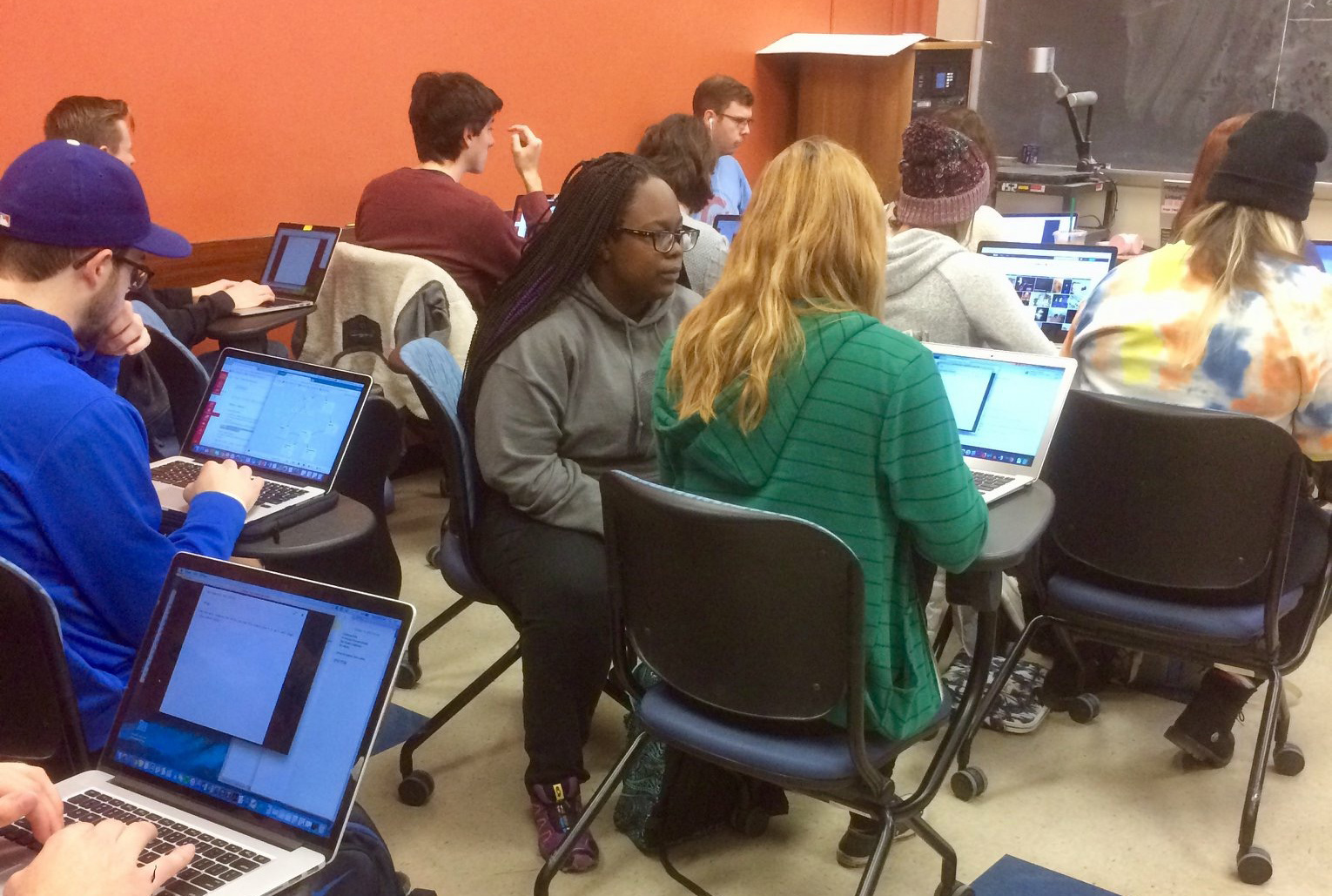Do you dream of being a poet or a teacher? Becoming a lawyer or an editor? Going to graduate school? A major in English can help you achieve these goals and more. As an English major you will learn to think critically, read carefully, and express your ideas effectively.
Combine courses in creative writing, rhetoric, literature, and even linguistics (which also has its own major) to design a degree program that best suits you. The English major at Iowa State allows you the flexibility to focus on your own areas of interest. For example, you could take a group of classes that explore film and scriptwriting or environmental literature and writing. If you like the idea of combining writing with science or technology, our major in technical communication may be for you.
If you are interested in English education, you can choose the English Education emphasis and earn your degree and also qualify for a secondary (grades 5-12) teaching license from the Iowa Department of Education, or earn an ESL endorsement.





